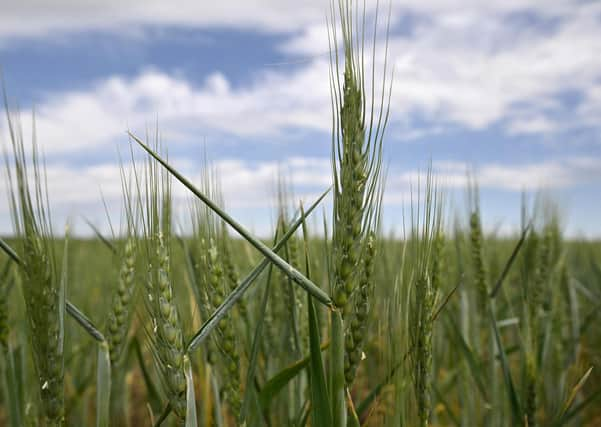Farmers warn UK must wake up to food security risks


Farming groups across the country have called on the UK Government to show the sort of vision required to give the industry confidence to continue producing high-quality and affordable food for the public, with skyrocketing farm input costs showing no signs of easing.
And while the UK is well placed to help address the imminent global food crisis, the country’s farmers have issued a call for governments to show “more vision” with a greater focus on both domestic and global food security in farm policy development.
Advertisement
Hide AdAdvertisement
Hide AdThe call came as a reaction to the warning issued by the UN’s Food and Agriculture Organisation (FAO) which last week called for a ‘transformation’ of agriculture to make it more resilient to shocks, following the publication of a global report which showed that 193 million people were acutely food insecure and in need of urgent assistance across 53 countries.
The fears of a world-scale food crisis have been prompted by the fact that, taken together, Russia and Ukraine produce 30 per cent of the global wheat supply, with Ukraine in particular being seen as the world’s breadbasket.
The recent conflict has cut off supplies from Ukraine's ports, which once exported vast amounts of cooking oil as well as cereals such as maize and wheat, causing a reduction in the global supply and a soar in the price of alternatives. According to the UN, global food prices are almost 30 per cent higher than at the same time last year.
On the home front the National Sheep Association (NSA) said that while the UK was well placed to help fill the gap, there remained a lack of vision from the UK Government when it came to food security and feeding the country.
“Many of the future farming schemes under development could help lead us to a better and more resilient and sustainable food sector – but there is still an absence of the vision, and a strategy, to deliver truly integrated ambitions for food, climate, nature, natural resources, and ethically sound food farming and land management,” said NSA chief executive Phil Stocker.
He said that investment in the nation’s own food supply chain, infrastructure and the next generation would be absolutely key in ensuring the UK continued to be able to feed itself in an increasingly volatile political landscape.
And, with the EU yesterday announcing a €1.4 billion aid package for their farmers, the Ulster Farmers Union said that producers in the UK were also seriously struggling to manage unprecedented inflationary costs: “Over the past year input prices for diesel, electricity, steel and concrete have doubled. Fertilisers, along with agri chemicals, have tripled in price over the same time period.
"If government as well as retailers don’t step in to ease the pressure, our food security is going to take a massive hit impacting the availability of locally produced, affordable food for consumers.”
Comments
Want to join the conversation? Please or to comment on this article.
